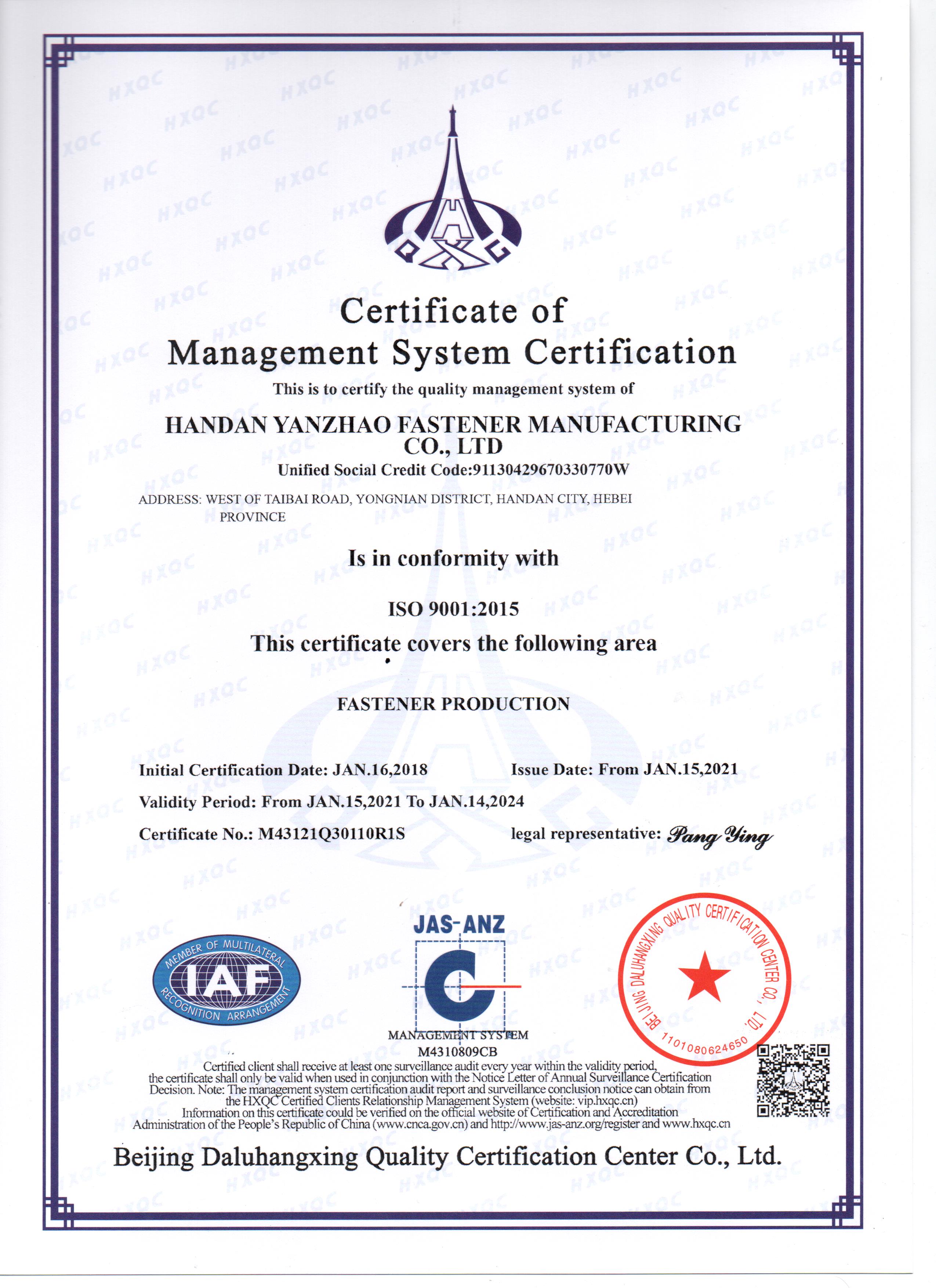header bolts
Nov . 16, 2024 15:12 Back to list
header bolts
Understanding Header Bolts An Essential Component in Modern Engineering
In the realm of mechanical engineering, fasteners play a crucial role in the assembly and construction of structures, machines, and various devices. Among these fasteners, header bolts stand out as an essential component, particularly in applications that require strength, durability, and the ability to withstand extreme conditions. This article delves into the intricacies of header bolts, exploring their design, applications, and advantages.
What Are Header Bolts?
Header bolts, often referred to as header screws or simply bolts, are specialized fasteners used to hold together components in various structures, especially in automotive and industrial settings. Their unique design typically features a thick, wide head that provides a larger surface area for the wrench or socket, allowing for easy tightening and increased torque application. This design is particularly advantageous in high-stress environments where secure fastening is critical.
Design and Material
The construction of header bolts involves various materials, each chosen for its strength, corrosion resistance, and compatibility with the environment in which it will be used. Common materials include stainless steel, carbon steel, and, in some cases, titanium. The choice of material often depends on the specific application, as different environments, such as high temperatures or corrosive atmospheres, necessitate different properties.
Moreover, header bolts come in various sizes and thread types, including coarse and fine threads. The selection of the appropriate size and thread type is essential to ensure a secure fit and proper load distribution. When designing an assembly or choosing fasteners for a specific application, engineers must consider factors such as tensile strength, shear strength, and the type of load the bolts will experience.
Applications of Header Bolts
header bolts

Header bolts are utilized in a plethora of applications, but they are particularly prominent in automotive engineering. In the context of vehicles, header bolts play a critical role in securing exhaust headers to the engine block. Exhaust headers are integral components of a vehicle's exhaust system, aimed at improving engine efficiency and performance by reducing exhaust back pressure. The high temperatures and vibrations experienced in automotive applications make the selection of reliable and durable header bolts imperative.
In addition to automotive uses, header bolts can also be found in construction, machinery assembly, and various industrial applications. For instance, in construction, these bolts are used to connect structural steel elements, providing stability and strength to buildings and bridges. Their ability to maintain integrity under heavy loads and varying environmental conditions makes them invaluable in these scenarios.
Advantages of Using Header Bolts
One of the primary advantages of header bolts is their ability to distribute stress evenly across a joint. This characteristic minimizes the risk of material failure, particularly in high-stress applications. Additionally, the robust design of header bolts allows for greater torque application, ensuring a tighter fit that can withstand vibrations and thermal expansion.
Another significant benefit is the ease of installation and removal. The design of header bolts enables quick and efficient assembly without requiring specialized tools. This aspect is particularly advantageous in industrial settings where time and efficiency are paramount.
Moreover, header bolts often feature coatings or treatments that enhance their resistance to corrosion and wear. This added protection extends the lifespan of the fasteners and reduces maintenance costs, presenting a more economically viable solution in the long run.
Conclusion
In conclusion, header bolts are a vital component in the field of engineering, providing strength, durability, and reliability in various applications. Their unique design, coupled with a wide range of materials and sizes, makes them suitable for high-stress environments such as automotive and industrial settings. By understanding the significance of header bolts and their applications, engineers can make informed decisions that enhance the safety and efficiency of their projects. Whether in a bustling manufacturing plant or under the hood of a vehicle, header bolts continue to be an indispensable part of modern engineering.
Latest news
-
Premium Phosphated Drywall Screws Supplier | Durable, Rust-Resistant
NewsAug.27,2025
-
Reliable Wire Bolts Suppliers | Quality Zinc Plated Fasteners
NewsAug.26,2025
-
Wire Bolts Suppliers: Durable & Reliable Fasteners for Every Project
NewsAug.25,2025
-
Premium Cabinet Bolts Supplier | Wholesale & Custom Solutions
NewsAug.24,2025
-
Reliable Axle Nuts Supplier | Quality & Precision Fasteners
NewsAug.23,2025
-
Durable Bolts for Lawn Mower Handle - Top Supplier & Manufacturer
NewsAug.22,2025
